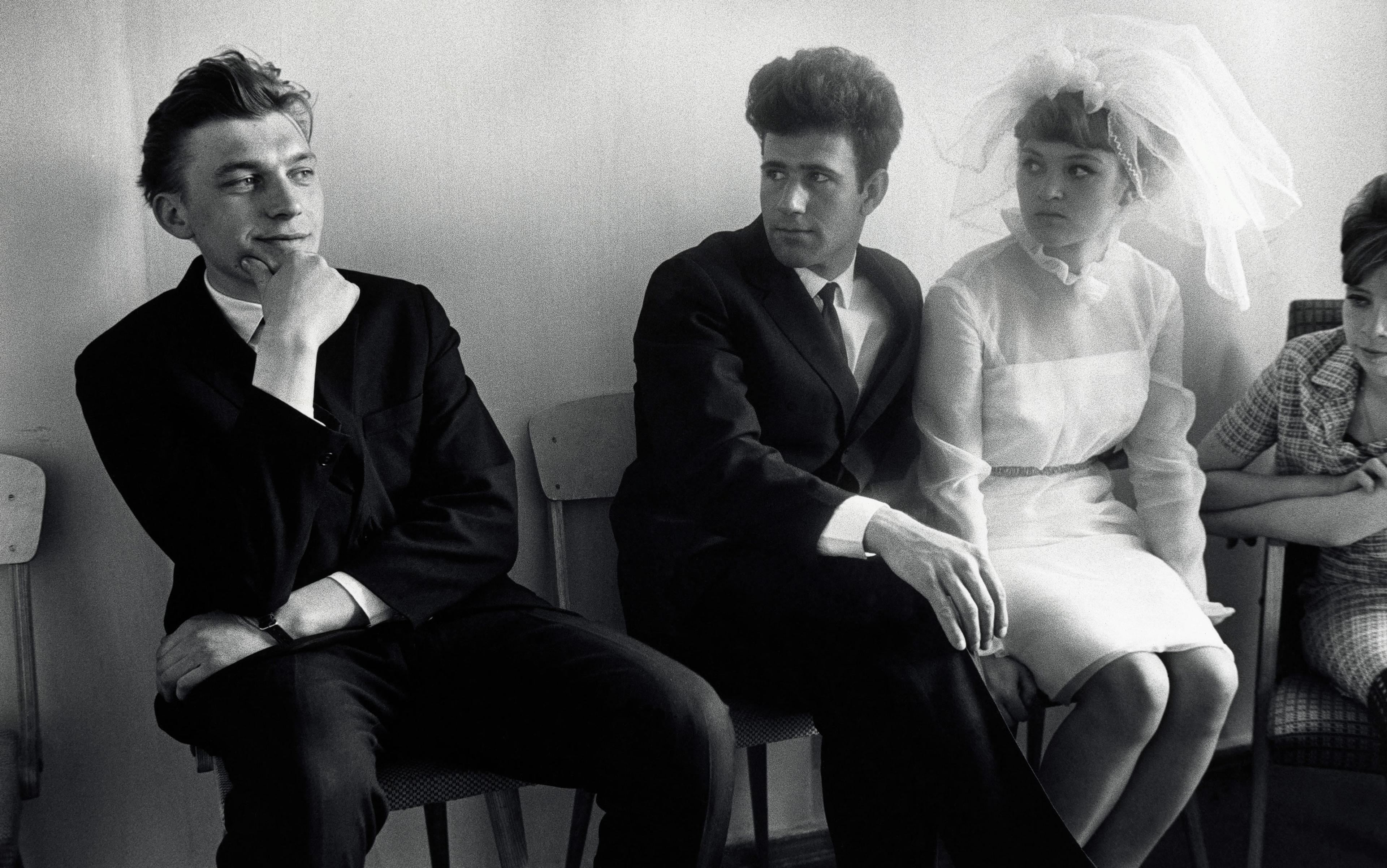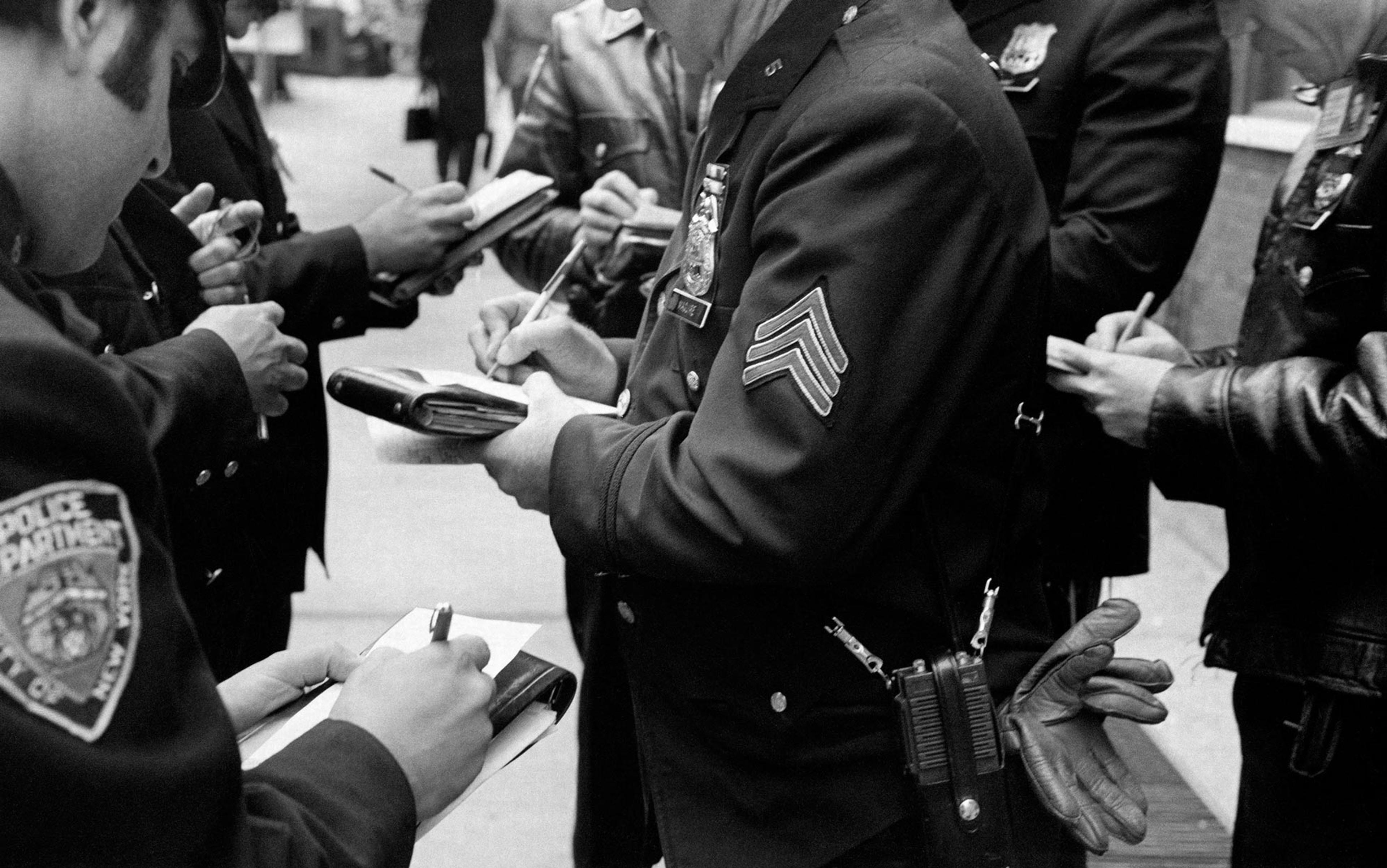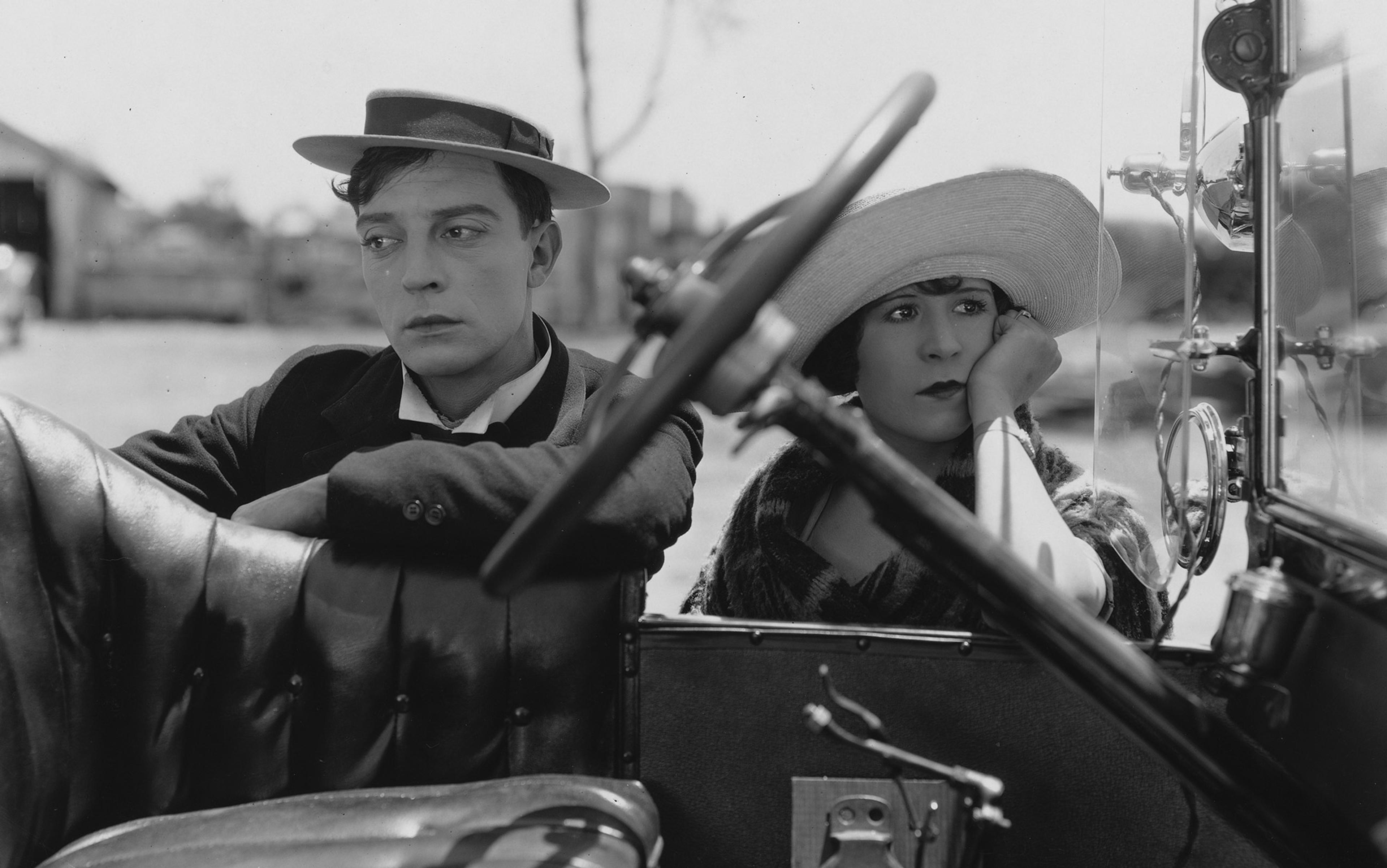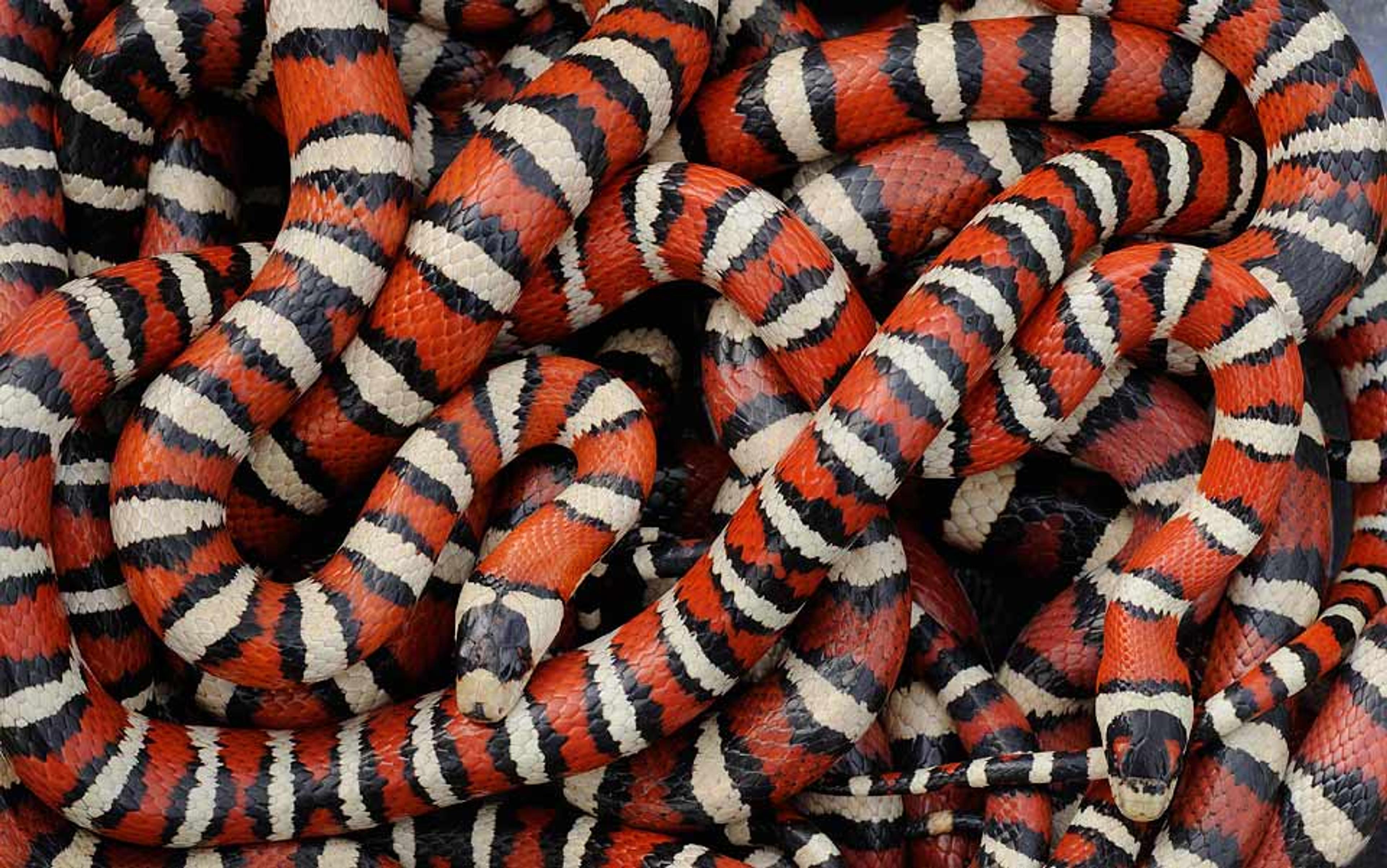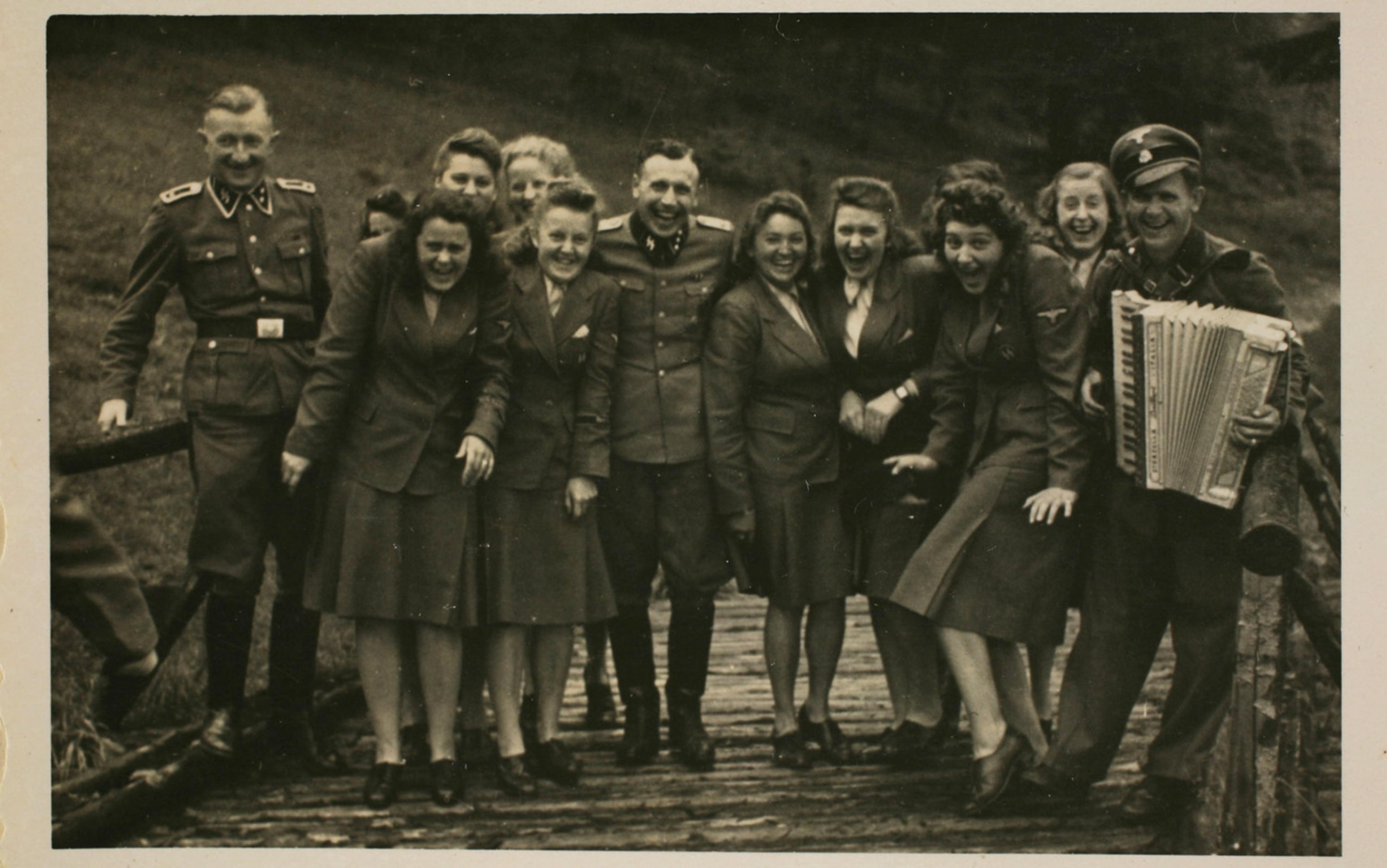Malevolent personalities come in flavours, says Del Paulhus, the University of British Columbia psychologist who coined the term ‘dark triad’ to describe a trifecta of human evil: the Machiavellian plotter strategising the downfall of others, smiling all the while; the impulsive psychopath, pouncing to steal a friends’ last penny; the self-entitled narcissist, seizing the corner office and the choicest cut of steak. These nasty personalities have remained entrenched in the gene pool because they sometimes confer advantage.
That a hyper-aggressive individual might dominate a passive one is hardly breaking news – nor is it surprising that master manipulators are going to fool the credulous and naïve. Sure, people who constantly, flagrantly lie and cheat, those who trammel relationships to steal from their friends, can seize an advantage. But a spate of research published over the past couple of years reveals something surprising and new: measured amounts of dark-side traits, expressed at lower levels – too little to be considered a diagnosable personality disorder – open the doors of perception, helping us see the world through an edgier, more on-the-bias creative lens.
According to Robert Biswas-Diener, a psychologist at Portland State University, we all need ‘permission to engage in acts of dominance, aggression, strategic manipulation, and selfishness’. Go ahead and put yourself first every so often. Cheat a little. Lie a little. Aggrandise yourself like a narcissist and, from time to time, throw humility out the door. The slightly evil among us could be more creative, more accomplished and contribute a decent dollop of good to the human race.
By far the most repugnant of the dark traits to help us take flight can be found on the spectrum of the psychopath, whose paradoxical behaviours wrap traits we value around ones we loathe. Based on clinical descriptions of the full-blown diagnosis, the criminal psychologist Robert Hare at the University of British Columbia has created an assessment tool that includes a complete palette of traits: glibness and superficiality; egocentrism and grandiosity; lack of remorse and guilt; lack of empathy; deceitfulness and manipulation; emotional shallowness; impulsivity; poor behaviour controls; a need for excitement; and a lack of responsibility.
Someone with all or most of these traits is clearly trouble. But someone with a handful of these traits – far less in number and at far lower magnitude than would be needed for an actual diagnosis of psychopathy – might have special life skills. Glibness and superficiality can help someone be a charming conversationalist. Egocentrism and grandiosity might confer the tunnel vision needed to achieve desires and goals.
There might be no better example of a dash of evil incarnate used for good than leaders of the free world. The psychologist Scott Lilienfeld at Emory University conducted a fascinating study on the prevalence of psychopathy among 42 United States presidents up to and including George W Bush. To do the work, Lilienfeld and his team reached out to historians studying each president to tease out both the negative and positive traits associated with personality. They also looked at independent assessments of presidential performance, correlating leadership and psychopathy scores.
It turned out that successful presidents scored high in the prevalence of a trait known as ‘fearless dominance’, characterised by an almost complete lack of fear in the face of great danger. Heroes have the trait, but it ‘also reflects the boldness often seen in psychopaths’, Lillienfeld says. His study on the presidents, published in The Journal of Personality and Social Psychology in 2012, noted that ‘fearless dominance’ was associated with ‘better-rated presidential performance, leadership, persuasiveness, crisis management, Congressional relations’. It was also associated with ‘initiating new projects and being viewed as a world figure’.
highly entitled people don’t have stronger desires, they just have less conflict – less guilt and overthinking when it comes to acting on those desires
In this study, a number of recent presidents – Reagan, Clinton, and George W Bush – emerged as strong leaders – and not surprisingly, they ignite strong feelings among the rest of us. ‘No matter if you agree with his policies, Bush [who was number 10 in the ‘fearless dominance’ line‑up] was very effective at implementing them,’ Biswas-Diener at Portland State says of Lilienfeld’s study. ‘When he wanted to go to war, he got a war. When he wanted to open a new national forest, he did it. When he wanted to start an entirely new branch of government – the Department of Homeland Security – he did it.’
In fact, Biswas-Diener and his fellow psychologist Todd Kashdan of George Mason University named one chapter of their new book, The Upside of Your Dark Side, after the US president Theodore Roosevelt, whom presidential scholars generally consider the fourth greatest president in the US. ‘Is Roosevelt’s success based on his indefatigable optimism and compassion?’ they ask in the chapter called ‘The Teddy Effect’. ‘Evidence suggests just the opposite: the possibility that Roosevelt was that rare person with equal access to both the light and dark sides of his personality.’ Teddy was impulsive and heedless enough of the concerns of others that he ditched protocol when it suited him – as when in 1903 he snuck away from Washington DC to explore Yosemite with the famed naturalist John Muir. But that overnight jaunt led him to a visionary embrace of protection for wilderness areas.
Of course, at the time, it’s quite possible some of his staff were thinking: ‘Who the hell does this guy think he is?’ Clearly, he felt entitled to break the rules when it suited him, and he shared that trait with other humans over the ages who have survived and thrived by flouting social expectations. It’s easy to see how entitlement – believing that you deserve more good things than others – would both confer some competitive advantage and piss off everyone else.
You know the entitled when you meet them: the folks who think they deserve the choice pick of Halloween candy and the best dorm room in the quad. They treat romantic partners selfishly. They are less likely to help others or apologise for their mistakes. They are more likely to break rules and behave unethically, all because they assume they are more deserving of everything from greater wealth to better work assignments to higher levels of respect.
‘Entitlement gives one a sense of being special and unique,’ says Lynne Vincent, a research psychologist at the Vanderbilt Owen Graduate School of Management in Nashville. Vincent and her colleague, the psychologist Emily Zitek of Cornell University’s School of Industrial and Labor Relations, knew that creativity also involves being unique, in that your ideas have to diverge from what’s standard and predictable. Perhaps there was a connection between creativity and entitlement, the psychologists conjectured.
Reviewing the literature, they found a 2010 study in the Personality and Social Psychology Bulletin showing that people with what psychologists call trait entitlement – the constant feeling of entitlement – were not necessarily more creative, but they were convinced of their superior creativity and able to convince others of it as well.
That observation fits neatly with research from the psychologist Roy Baumeister of the Florida State University, who showed that highly entitled people don’t have stronger desires, they just have less conflict – less guilt and overthinking when it comes to acting on those desires. Because they act on their creative fantasies, they often wind up launching ideas and enterprises that benefit the whole society.
To tread new ground, Vincent and Zitek designed a study looking at ‘state entitlement’, a temporary feeling of superiority. They asked some of the participants to undertake tasks intended to temporarily inflate their sense of entitlement – for instance, writing about why they should demand the best, why they deserve more than others, and why they should get their way; a control group wrote about why they were not more deserving. Then the researchers administered tasks to both groups that are commonly used in studies to assess creativity. Vincent and Zitek’s hypothesis was also correct: the temporary burst of entitlement spurred by the writing prompts caused the first group to soar creatively.
Creativity can also be sparked by another disagreeable trait: dishonesty. Francesca Gino at Harvard Business School and Scott Wiltermuth of the Marshall School of Business at the University of Southern California published a study probing the connection between dishonesty and creativity in Psychological Science in 2014. Their work fits into a swathe of scholarly interest in cheating, lying and other unethical behaviours at the root of trillions of dollars in financial losses a year. Other researchers have observed that creative people and divergent thinkers have to do a certain amount of rule-breaking – because they think outside the proverbial box, they are able to see associations between dissimilar things that other people might miss. This raises the possibility that creative people might be prone to other forms of rule‑breaking, such as cheating and lying.
Wiltermuth wanted to flip that assumption around. ‘I thought that if creativity can lead to cheating, the opposite might also be true: that an act of dishonesty might lead someone to be more creative,’ he says.
cheating gets people out of a rule-following mindset. And creativity is a result
Gino and Wiltermuth undertook five interlocking experiments looking at how cheating moved the needle on participants’ creativity. In the first, they began with a baseline test of creativity called the Duncker candle problem. Participants were given a picture of a candle, a box of thumbtacks and a pack of matches lying on a table next to a cardboard wall and were told they had three minutes to figure out how to attach the candle to the cardboard wall in such a way that it did not drip wax on the table or the floor. The correct and most creative answer is to dump out the tacks, attach the empty box to the cardboard wall, and put the candle inside.
Then came the part of the study that was carefully conceived to encourage cheating. The participants were presented with a numerical problem-solving task with a deadline. They were asked to self-report their successes and informed they could receive a cash bonus for their correct answers. Both of these details were intended to spur dishonesty. Without their knowledge, the computer recorded their answers. They might lie about the number of their correct answers, but the machine tracked the truth.
The final part of the experiment was the Remote Association Task (RAT), another test of creativity that asks participants to find an uncommon connection between three commonly related words. For instance, a prompt could be sore, shoulder, and sweat; the usual word linking them would be cold. More creative souls gave a more unusual choice.
As with some other dark acts, cheating and lying catapults perpetrators to new creative heights. But the connection between dishonesty and creativity is tricky, Wiltermuth explains. ‘I can’t go out and say to everyone: “Let people lie to you so they can be more creative.” Yet cheating gets people out of a rule-following mindset.’ And creativity is one result.
Many of us have a kneejerk revulsion towards lying and cheating on moral grounds. It’s especially galling when these behaviours occur in professions where we want paragons of virtue to cluster. The physicians Anita Kusnoor and Ruth Falik of the Baylor College of Medicine in Houston have been studying survey data to get a handle on cheating in medical school. Even though there is no satisfactory data, they are distressed at the level of cheating described and at how efforts to combat it have failed. The cheating behaviours that they looked at cover a wide range, from copying notes from class to entering data in the medical records that is not based on examination. ‘You hate to see this in a profession where you want everyone held to a higher standard,’ Falik tells me – one in which lives are at stake.
These bad behaviours seem like grasping and unfortunate traits unique to humans, except they are not. Researchers have found that even in highly social animals that we admire for their selflessness and collaboration – the much-exalted bees, for example – cheating is rampant.
This has been a revelation for researchers, says Madeleine Beekman, an evolutionary biologist at the University of Sydney. For 10 years, she and others studied cheating among the somewhat oddball Cape honeybee, which produces offspring by cloning, not mating. They found abundant evidence that ordinary females broke the hive rules and cheated on the queen bee by producing their own offspring, which is a role supposedly reserved for the queen. These renegade worker bees managed to dodge hive police by cloaking themselves with a perfume that made them smell like the queen and then laying their eggs in special cells where they would be fed, nurtured and raised to be queens.
Beekman and her colleagues assumed that cheating was unique to Cape honeybees. Then they cast their eye on regular honeybee hives, in which virgin queens produce eggs by mating with drones produced by queens from different colonies, and were shocked to see similarly high levels of cheating among the worker bees. In an article for Molecular Ecology entitled ‘Cheaters sometimes prosper’ (2013), they noted that certain lineages within the hive were especially skilled at producing and sneaking their own drones into the line‑up of eligible partners for the virgin queen.
it was always assumed that an organism would cheat, lie and do anything to get their own genes to the next generation
‘We always used to think that all social insects behaved altruistically,’ Beekman says. ‘We thought that they all played nice and obeyed the secret rules of gene selection, and that cheating only happened as an aberration. Now we have to change the way we introduce our own little species.’
Other species that follow strict reproductive rules have a cheating streak, too. Beekman points to naked mole rats, also ruled by queens who have the exclusive right to reproduce and who beat up other females to maintain that right – until they get pregnant and, in that weakened state, are challenged by other females who want to take over. Or certain species of fish, says the biologist Alex Jordan of the University of Texas at Austin – fish whose females choose reproductive partners from males that put on a colourful display. But the flashy male fish are sometimes co‑opted by males that gain female partners by coercion. And really, Jordan explains, this is the kind of behaviour that evolutionary theory predicted all along: it was always assumed that an organism would cheat, lie and do anything possible to make sure their own genes were represented in the next generation.
‘Going as far back as Darwin, it was altruism rather than cheating that caused theoretical concerns,’ says Jordan, who is a co‑author with Beekman on a 2009 study of bee cheating. ‘It’s more difficult to explain co‑operation than selfishness. Whenever there is a strategy that can be exploited, we assume and expect that it will be exploited. If there’s evolutionary cash on the table, selection will generate a behaviour to grab it.’
Both Jordan and Beekman point out that cheating in these highly social bee communities might benefit the individual, since their genes go on to rule the hive. But rampant dishonestly doesn’t do much for the hive. ‘When a majority of the worker bees don’t do what they’re supposed to do, these colonies collapse,’ Beekman says. ‘In the Cape honeybee colonies where we find lots of cheating, the workers fight with each other and don’t work. When you compare them to other colonies, they’re small, they don’t forage enough, and they don’t raise a lot of brood. If you want a society that works, individuals should be nice and do what they’re supposed to do, and try not to cheat.’
The value of dark traits is a little more nuanced when it comes to humans. While we certainly won’t thrive as a society with rampant rule-breaking, we might have to embrace our dark side from time to time. Perhaps we need not recoil from our own grandiosity or aggression. We don’t have to beat ourselves back onto the path of unmitigated goodness – and we might need to forgive our friends a trespass or two because they are, after all, human, just like us.
